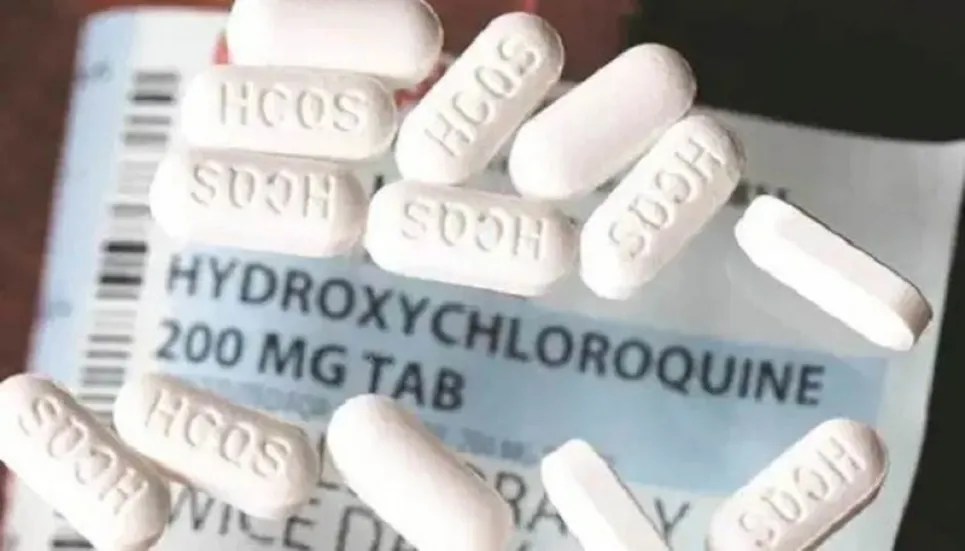
The World Health Organisation’s (WHO) said on Wednesday the ongoing Solidarity trial, which is being conducted to find an effective treatment for the novel coronavirus, has suspended testing malaria drug hydroxychloroquine after data showed the drug does not reduce mortality of hospitalised Covid-19 patients compared to the standard of care.
Addressing the WHO briefing in Geneva, Dr Ana Maria Henao Restrepo, head of the research and development blueprint, said that the decision was taken to stop the hydroxychloroquine arm of the Solidarity Trial based on the evidence from a study published by a trial conducted in the United Kingdom, and the preliminary date from the Solidarity trial, including the French discovery trial data.
The trial’s Executive Group and principal investigators made the decision based on evidence from the Solidarity trial, UK’s Recovery trial, and a Cochrane review of other evidence on hydroxychloroquine, the WHO official said.
After Wednesday’s decision, investigators will not randomize further patients to hydroxychloroquine in the Solidarity trial. However, patients who have already started hydroxychloroquine but who have not yet finished their course in the trial may complete their course or stop at the discretion of the supervising physician, the WHO said.
''This decision applies only to the conduct of the Solidarity trial and does not apply to the use or evaluation of hydroxychloroquine in pre or post-exposure prophylaxis in patients exposed to Covid-19," the WHO pointed out.
Significantly, in May, WHO had temporarily had stopped that hydroxychloroquine arm of its Solidarity trial. Wednesday’s WHO decision also comes just two days after the US Food and Drug Administration on Monday revoked its emergency use authorization for the drugs hydroxychloroquine and chloroquine for treatment of Covid-19.
''We took three actions. First, was to conduct a systematic review of the evidence. Second, was that we looked at the safety of hydroxychloroquine, among the patients who were treated in the Solidarity trial and Discovery trial in France. Third, we promised that we will look into evidence though our data safety monitoring committee. After completing these steps, we had communication with our executive group that is formed by our representatives of seven member states, who are participating in the trial," Dr Restrepo said.
''And today, we finalised, after we called all the investigators in the trial. Based on the evidence that is available to investigators, secretariat and the executive group – a decision was made to stop the randomisation with the hydroxychloroquine trial on the basis of two pieces of information. First, the data that was published by UK trial, and second, the data that was available to us from the solidarity trial," Dr Restrepo said.
Wednesday’s decision, as Dr Restrepo, has been taken after the investigators of the UK’s RECOVERY trial, on June 5, had said that there was no clinical benefit from the use of hydroxychloroquine in hospitalised patients with Covid-19. The announcement came after the UK Medicines and Healthcare Products Regulatory Agency (MHRA) had asked the independent Data Monitoring Committee to conduct a further review of the data.
‘We have concluded that there is no beneficial effect of hydroxychloroquine in patients hospitalised with Covid-19. We have therefore decided to stop enrolling participants to the hydroxychloroquine arm of the RECOVERY trial with immediate effect," the Oxford researchers had said.
The UK researchers had concluded that out a total of 1542 patients were randomised to hydroxychloroquine and compared with 3132 patients randomised to usual care alone – there was no significant difference in the primary endpoint of 28-day mortality, and also there was no evidence of beneficial effects on hospital stay duration or other outcomes.
''Solidarity" is an international initiative for clinical trials launched by the WHO, along with partners, to help find an effective treatment for Covid-19. It was originally supposed to look at four drugs or drug combinations: remdesivir, HCQ, ritonavir/lopinavir, and lopinavir/ritonavir/interferon beta 1a.
(Source: The Indian Express)